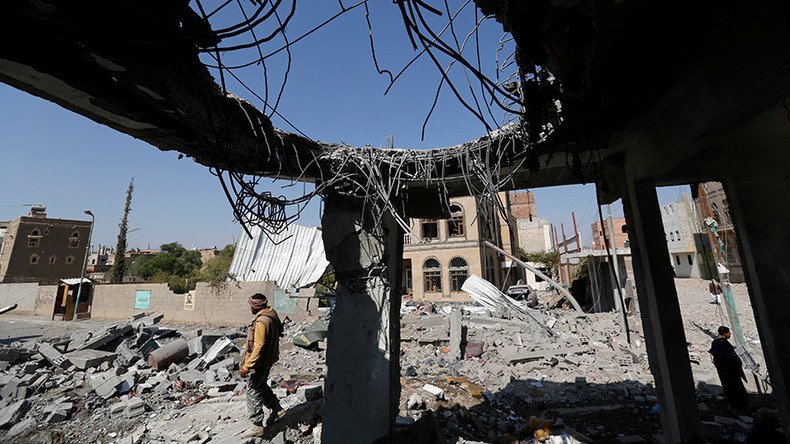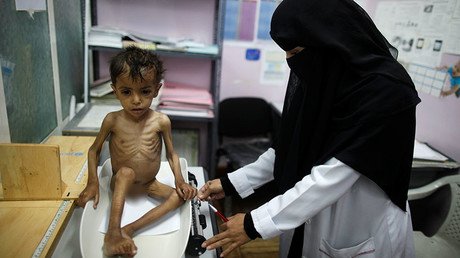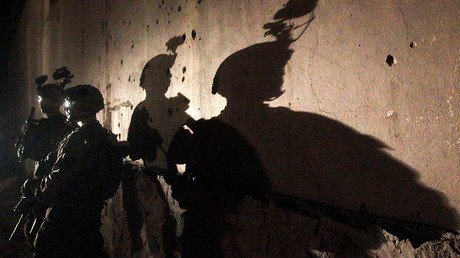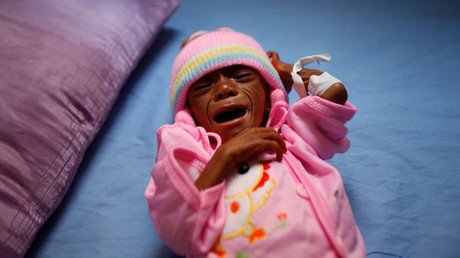‘No legitimate military objectives’: UN panel finds Saudi strikes in Yemen may amount to war crimes

An expert UN panel investigating ten separate airstrikes by the Saudi-led coalition in Yemen - in which at least 292 civilians died - has found that most were the result of an ‘ineffective targeting process’ or deliberate attacks on peaceful targets.
"In eight of the 10 investigations, the panel found no evidence that the airstrikes had targeted legitimate military objectives," the 63-page report presented to the UN Security Council on Friday stated, which has been obtained by Reuters. "For all 10 investigations, the panel considers it almost certain that the coalition did not meet international humanitarian law requirements of proportionality and precautions in attack.”
"The panel considers that some of the attacks may amount to war crimes," the experts said, echoing statements repeatedly made by independent observers since conflict broke out in the country two years ago.
The small subset of attacks, which took place between March and October last year, resulted in the deaths of over 100 women in children. Earlier this month, the UN humanitarian coordinator for Yemen, Jamie McGoldrick, estimated that more than 10,000 people have been killed in the war so far, with many of them the victims of air strikes.
Saudi Arabia’s UN Ambassador, Abdallah Al-Mouallimi, flatly denied responsibility, saying the coalition - which includes Gulf states such as Qatar and Kuwait - was "exercising maximum restraint and rigorous rules of engagement."
The panel also stated that the alliance admitted that some of their airstrikes resulted in severe casualties, which was not the desired outcome.
"In some cases errors were acknowledged and responsibility accepted. Corrective measures including compensation to victims were taken," the authors of the report wrote.
The UN panel said that although it was unable to travel to the bombing sites, it still "maintained the highest achievable standard of proof," and insisted the specific cases studied were part of a wider trend.
"The panel finds that violations associated with the conduct of the air campaign are sufficiently widespread to reflect either an ineffective targeting process or a broader policy of attrition against civilian infrastructure," proclaimed the report. "All coalition member states and their allies also have an obligation to take appropriate measures to ensure respect for international humanitarian law by the coalition."
The UN group also dismissed Saudi explanations that the devastating naval blockade of Yemen had been imposed because Iran was supplying Shia Houthi rebels with weapons.
"The panel has not seen sufficient evidence to confirm any direct large-scale supply of arms from the Government of the Islamic Republic of Iran, although there are indicators that anti-tank guided weapons being supplied to the Houthi or Saleh forces are of Iranian manufacture," said the report, which said 2,064 weapons seized on boats off the coast, had possible “direct” links with Iran.
The UN criticized the blockade for its "disproportionate impact" on civilians, saying the country, 90 percent of whose food supplies are imported, is on the verge of famine. Yemen was already one of the region’s poorest states before the current crisis, but according to the UN, 14.1 million people - over half of the population – are “food insecure,” and over two-thirds require humanitarian assistance, due to internal displacement, lack of medical supplies and clean drinking water.
Despite the devastating conclusions of the latest UN report, the US and UK, which are not directly taking part in the bombardment and blockade of Yemen, have avoided directly criticizing Riyadh, a longtime ally.
"We urge all sides to take steps to prevent harm to civilians. Ending the conflict in Yemen requires a durable cessation of hostilities and a comprehensive political solution," the US State Department said in a statement.
READ MORE: Women of Yemen call to arms against Saudi aggression (VIDEO)
The British mission to the UN, while refusing to comment on the specific incidents mentioned in the report said, "We take reports of alleged violations of international humanitarian law by actors in the conflict very seriously.”
Both the US and the UK have been major suppliers of arms to the Saudis. In September 2016, Reuters reports, the US Senate cleared the way for a $1.15 billion sale of tanks and other military equipment to kingdom. Saudi Arabia has also been buying arms from the UK – with estimated purchases at some 3.3 billion pounds. That includes more than 2.2 billion worth of warplanes, helicopters and drones.















